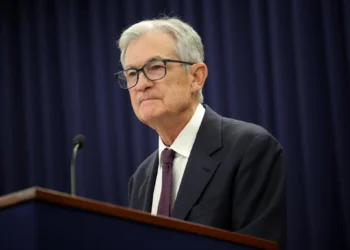CAIRO (Realist English). Egypt has unveiled a sweeping reform program that shifts the private sector to the forefront of national growth, with Prime Minister Mostafa Madbouly pledging to cut debt to its lowest level in the country’s history and sustain a rapid expansion of exports.
The National Narrative for Economic Development was launched in the New Administrative Capital in a ceremony attended by cabinet members, lawmakers, diplomats and business leaders. The plan, aligned with Egypt Vision 2030, integrates ongoing reforms with a roadmap for attracting investment, boosting productivity and redefining the role of the state. It will undergo two months of consultations with experts and the public before its final release in December.
“The narrative is based on a fundamental principle we affirm with utmost clarity: the private sector will lead Egypt’s economic development in the coming period,” Madbouly said in his keynote speech. He stressed that debt reduction remains a priority, aiming to bring liabilities down to “the lowest level Egypt has ever seen.”
Madbouly highlighted that GDP expanded 4.2 percent in the first nine months of the current fiscal year, compared with 2.4 percent a year earlier, driven by industry, tourism, agriculture and ICT. Inflation dropped from 25.7 percent in July 2024 to 13.9 percent a year later, while remittances exceeded $36.5 billion and unemployment fell to a four-year low. Exports are projected to rise 20 percent this year, with the government targeting similar growth for the next five years, supported by infrastructure upgrades and the Suez Canal Economic Zone.
Investment and Foreign Trade Minister Hassan El-Khatib said the narrative incorporates the Foreign Direct Investment Strategy 2025–2030, designed to broaden Egypt’s investor base and channel high-quality capital into 13 priority sectors. Eight sectors are ready for immediate promotion, while five require further reforms. The strategy was prepared in coordination with the World Bank Group, the General Authority for Investment and Free Zones, and other ministries, with private sector input.
Key tools include a unified licensing platform connecting 41 government bodies, offering 389 electronic services and e-payment for 250 of them. The ministry is also preparing for Egypt’s participation in the World Bank’s new Business Ready report by translating nearly 2,000 survey questions and drafting a reform matrix in consultation with businesses.
Planning and Economic Development Minister Rania Al-Mashat said the reforms aim to recast the state’s role “from operator to regulator, enabler and investment partner.” She noted that 59 of 63 state economic entities are under review for restructuring, merger or liquidation to boost efficiency and curb spending. A new state ownership index will track progress and measure private sector participation.
Madbouly concluded that the reforms are designed not only to deliver stronger economic indicators but also to improve living standards. “Ultimately, these reforms must have a positive impact on the well-being of Egyptian citizens,” he said. “We are working to reduce the state’s role in economic activity, empower the private sector, and measure success with clear, quantitative indicators.”


















